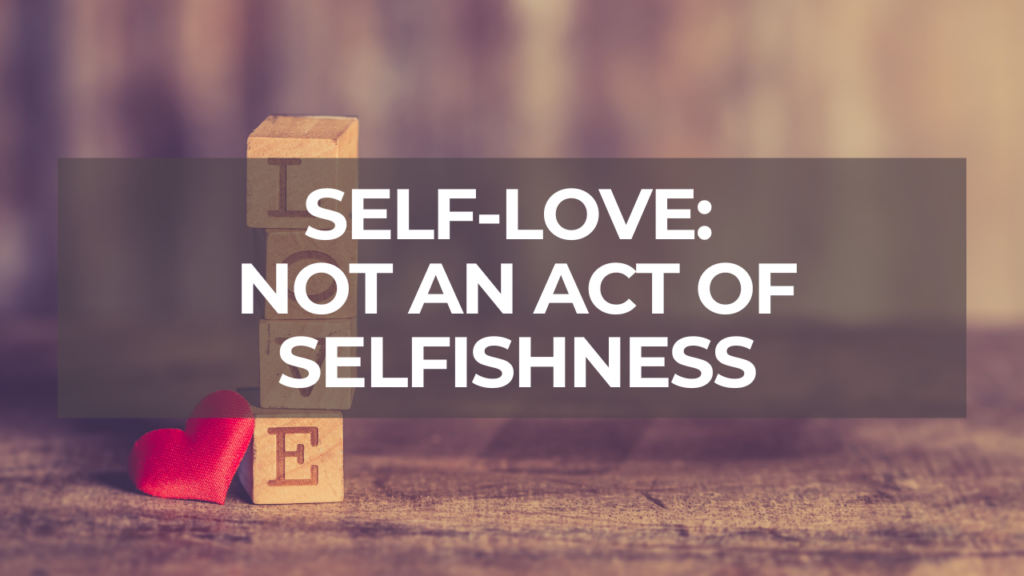Self-Love: Not an Act of Selfishness
- Rick J Petronella PhD
- May, 14, 2025
- Newsletter
- No Comments
Dr. Rick Petronella

Self-Love: Not an Act of Selfishness
Self-love is often misunderstood; it is sometimes seen as an act of selfishness rather than a vital
step towards personal empowerment. However, embracing self-love is a transformative
journey that allows individuals to nurture their well-being and develop a deeper connection
with themselves. This journey is not about prioritizing oneself at the expense of others, but
rather about recognizing one’s inherent worth and understanding that taking care of oneself
can lead to a more balanced and fulfilling life. By cultivating self-love, we can enhance our
capacity to empathize with others, forge healthier relationships, and ultimately contribute
positively to the world. This process requires patience and compassion towards oneself and
others, embracing the idea that begins with respecting and valuing oneself.

Self-love is frequently misinterpreted or misconstrued. Many people may struggle to
understand its true nature and significance.

Self-love is frequently misinterpreted. Many people perceive it as selfishness or vanity, when in
reality, it encompasses a deeper understanding of oneself and a commitment to nurturing
mental and emotional well-being. It is important to recognize that self-love involves valuing and
accepting oneself, which can lead to healthier relationships and a more fulfilling life.
Understanding this distinction can help us embrace our own worth and practice self-care
without guilt
Self-love is often misunderstood, and it’s important to clarify that it is not a selfish act but a
necessary journey of empowerment. Embracing self-love allows individuals to recognize their
own worth and value, fostering a deeper understanding of themselves.
When we engage in self-love, we nurture our mental, emotional, and physical well-being,
which, in turn, enables us to better engage with others and the world around us. By prioritizing
our own needs and feelings, we cultivate resilience and confidence, essential qualities that
support healthy relationships and interactions.

Practicing self-love encourages compassion toward oneself, enabling a break from negative
self-talk and the unrealistic standards often imposed by society or even ourselves. This shift in
perspective enhances our self-esteem and empowers us to be more empathetic and supportive
to others on their journeys.
Addressing Common Misconceptions
It’s crucial to distinguish self-love from selfishness. While selfishness often involves prioritizing
one’s own needs at the expense of others, self-love is rooted in understanding that caring for
ourselves allows us to be more present and supportive in our relationships. When we are whole
and fulfilled, we can give more generously to others.
In Matthew 22:39, Jesus states, “You shall love your neighbor as yourself.” This teaching is
profound and central to His message about how we should relate to others. When Jesus speaks
of loving our neighbor as ourselves, He emphasizes the importance of empathy and compassion
in our interactions with others.
To love your neighbor as yourself means to extend the same care, respect, and kindness that
you would wish for yourself to others in your community. It encourages us to recognize the
shared humanity among all people, fostering a sense of connection and responsibility for one
another. This concept invites us to consider the feelings and needs of others, just as we would
want our feelings and needs to be acknowledged and respected.
Empathy plays a critical role in understanding this directive. By encouraging us to put ourselves
in our neighbors’ shoes, Jesus urges us to respond to their struggles and joys with the same
intensity we would hope to receive in our own lives. It invites us to celebrate the successes of
others and to support those who are suffering, just as we would seek support during our
difficult times.

Additionally, Jesus’ teaching can be seen as a call to action. It challenges us to go beyond mere
acknowledgment of others’ existence and actively engage in their welfare. This might involve
acts of kindness, advocacy for justice, or simply being present for someone in need.
By loving our neighbors as ourselves, we contribute to a more compassionate and
understanding society, where one can feel valued and cared for. This is not merely a moral
obligation; it is an invitation to embrace the beauty of community and to recognize that in
loving others, we also find a deeper love for ourselves.
In a world that often emphasizes achievement and outward success, the concept of self-love
can sometimes be misunderstood. It’s important to clarify that self-love is not a license to
selfishness; rather, it is a deeply transformative practice that can lead to a better sense of
self, healthier relationships, and a greater capacity for kindness toward others.
Quiz on Self-Examination
Self-examination is a vital tool for personal growth and self-awareness. If you’re
contemplating whether you lean towards selflessness or selfishness, or if you are
healthy or in need of help, reflecting on some thoughtful questions can provide
clarity.
Below are 15 quiz questions designed to facilitate this reflection process.
Remember, it’s okay to have complex feelings and to be in a different place on
your journey towards better understanding yourself.
1.How often do I find myself prioritizing my needs over the needs of others
- Reflect on moments when you’ve made a conscious choice to either help yourself or
help someone else.
2.When was the last time I performed an act of kindness without expecting
anything in return?
- Think about your motivations behind your actions. Genuine acts of kindness can
reveal selfless tendencies.
3.Do I often feel guilty for taking time for myself?
- Recognizing guilt can help you understand how you perceive your own needs and
well-being.
4.How do I respond when someone asks for my assistance?
- Consider if you feel compelled to help immediately or if you often refrain from helping
for your own reasons.
5.In conversations, do I listen more than I speak?
- Listening is a key aspect of selflessness. Reflect on your habits in communication.
6.Do I seek recognition or praise for my achievements?
- Self-awareness about your motivations can reveal whether you are driven by your
ego or by the desire to contribute.
7.How often do I engage in self-care practices?
- Self-care is essential for overall health. It’s important to check in with yourself
regarding how you nurture your well-being.
8.Am I comfortable expressing my emotions to others?
- Being open about feelings is crucial for emotional health and connecting with others.
9.Do I support friends and family in their struggles, even when I’m facing
challenges of my own?
- This can indicate a leaning towards selflessness, but it’s vital to maintain your own
balance too.
10.Am I often preoccupied with what others think of me?
- This question can help you gauge whether you are living for others’ approval or
being true to yourself.
11.How do I react to criticism or feedback?
- Consider whether you accept it constructively or if it leads to defensiveness. This
can highlight personal growth areas.
12.Do I find myself comparing my life to others?
- This may point to feelings of inadequacy or self-centeredness, affecting how you
perceive your own life versus others.
13.When I feel overwhelmed, do I ask for help or try to handle everything on my
own?
- This can help you assess your level of self-reliance and whether you recognize the
importance of support.
14.How satisfied am I with my current mental and physical health?
- Reflecting on your satisfaction can lead to greater awareness of when you might
need help.
15.Do I have a support system in place?
- This is crucial for well-being. Knowing if you have people to lean on can determine
how effectively you navigate challenges.
Conclusion
Engaging with these questions can take time and may lead to feelings of vulnerability.
Remember, self-examination is a journey, not a destination. Being honest with yourself
can open pathways to self-improvement, emotional healing, and enhanced relationships
with others. Whatever you discover, be gentle with yourself in this important endeavor.
Seeking help or support when needed is a courageous and selfless act.